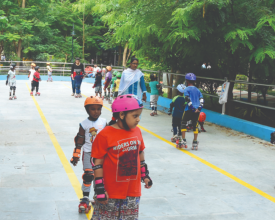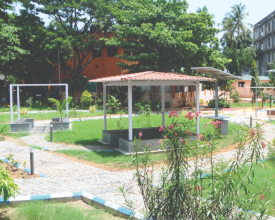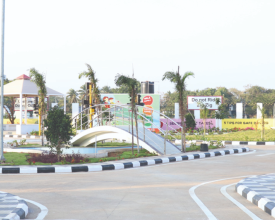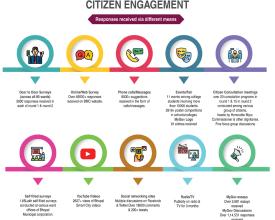
Chennai Smart City – Environment Initiative
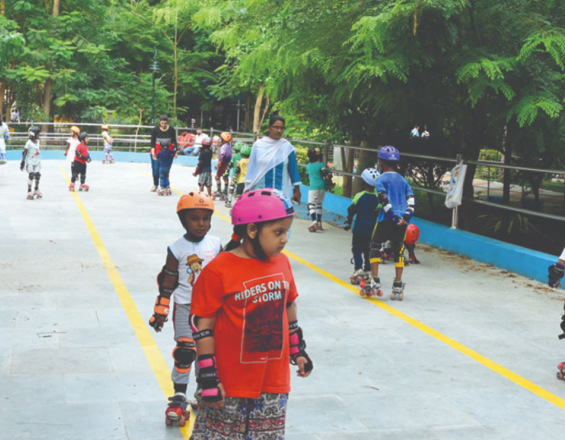
In 2015, the Indian government launched the Smart Cities Programme to support cities in becoming more resilient to social and environmental challenges while fostering safe and sustainable living. Chennai was one of the first cities selected to implement the new program. In Chennai, the development of the plan was prepared through a bottom-up approach – promoting citizen participation to understand residents’ challenges, needs, and preferences. Local stakeholders were engaged through 15 public consultations, essay and drawing competitions for students, the involvement of citizens organisations such as Citizens of Chennai, and more. The programme is split into five focus areas: Mobility, Technology, Water, and Environment. For the Smart Environment Initiative, Chennai Smart Cities has thus far worked on retrofitting green spaces, creating sensory parks, traffic parks, restoring water bodies, and investing in vertical gardens.
Impacts
Smart Cities has refurbished eight parks in Chennai by increasing green cover, introducing native plants, and incorporating rainwater retention. Elements for resting, shelter, and disability-friendly infrastructure are added to increase social engagement. Two Sensory parks are explicitly built to involve children in nature. These parks include edible plants, tactile sculptures, braille signage, and playful water features. A Traffic park has been created to improve awareness of traffic safety among children. The park is equipped with road signs, traffic signals, and road crossings to provide learning experiences with safely moving around in traffic.
In terms of building and restoring natural areas, Chennai Smart Cities has rebuilt 32 waterbodies and has decided to implement vertical gardens. Regreening vertical spaces allows for the implementation of greenery in dense-urban areas where open parks cannot be realized.
Due to rapid urbanization, many ancient water bodies in Chennai have disappeared or are polluted. The lack of clean water bodies and the existing polluted and abandoned sites impair local livelihoods and biodiversity. Therefore, Smart Cities identified 210 water bodies for restoration, of which 32 are already restored. These revived water bodies are proving effective in delivering a range of benefits to people and native wildlife.

